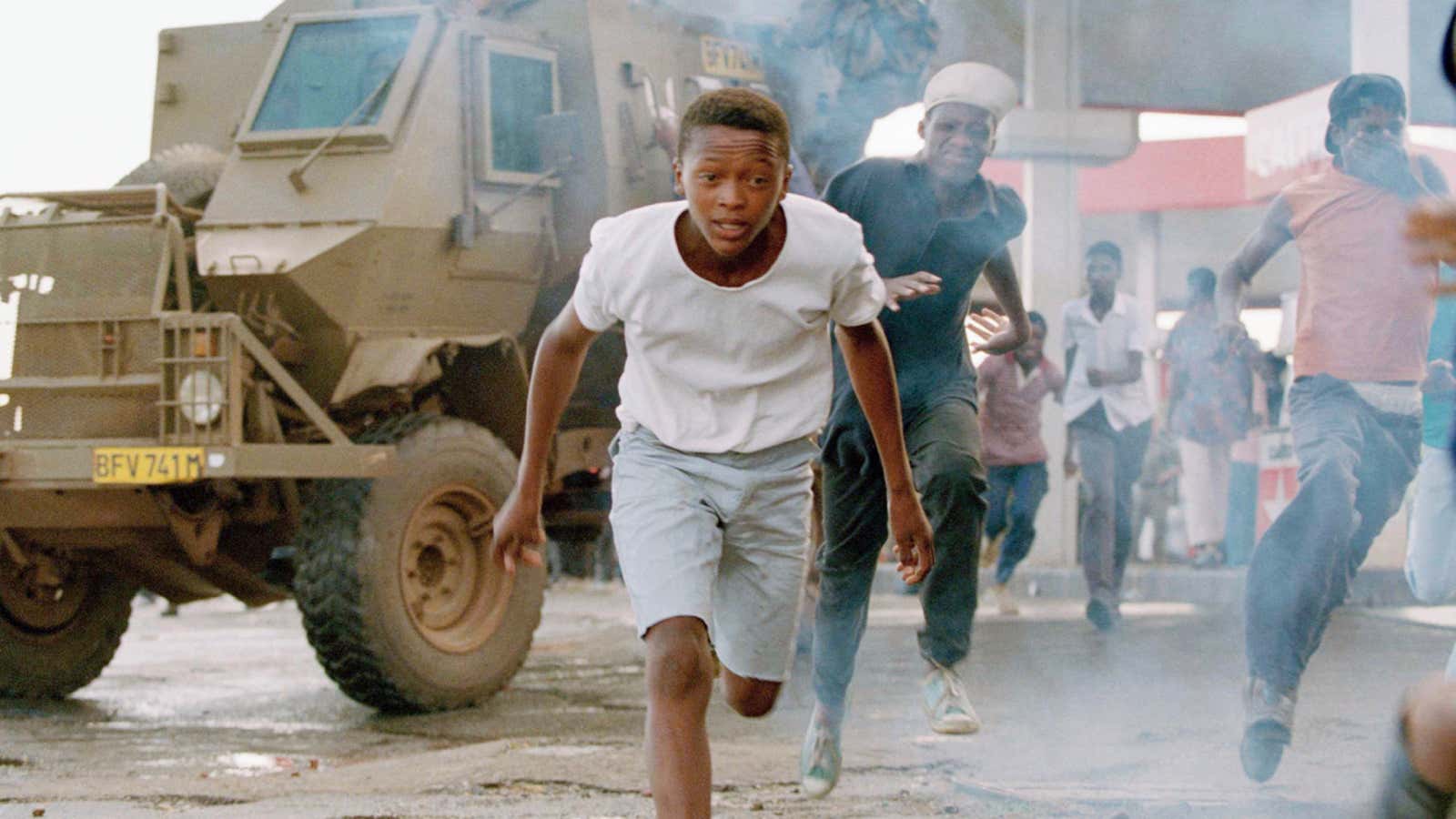Johannesburg
At 14, they dropped out of school, picked up semi-automatic guns and arranged themselves into guerilla armies that would defend their neighborhoods. Now as adults, they struggle to integrate into the country they gave up their childhoods for.
While the brutality and dissociation of child soldiers in several African countries is well documented, South Africa has practically ignored its own juvenile fighters who were on the front lines of township battles as the country teetered on the brink of civil war during the anti-apartheid struggles. With the euphoria of the 1994 election that made Nelson Mandela president, everyone moved on—except the country’s child soldiers.
A new film tracks down those fighters and records their first-hand accounts of the trauma they inflicted and experienced. The documentary Children of War, directed by Nhlanhla Mthethwa, screened at the Encounters documentary film festival in Johannesburg this month. Set in Thokoza township on the outskirts of Johannesburg, it resists the scenes and fighters of that bloody time. Now adults, it was the first time that some of the former child soldiers shared their stories.
In the small cinema of the independent theatre in gentrified downtown Johannesburg, The Bioscope, the sniffles turned to sobs as the film played. One was comforted by her partner while another, now a middle-aged man, doubled over with tears in the front row. Another, who turned to alcohol to cope with his untreated post-traumatic stress disorder, was incoherent and heartbroken. The director’s panel discussion was so heavy afterward that audience members left the group of former soldiers to huddle with Mthethwa.
“Those are the people who were just forgotten,” says Mthethwa, who grew up in Thokoza and was whisked away by his father when the fighting escalated. “Once we voted, people just moved on.”
Using only their first names, the film introduces Mochacho, Tebello, Sipho and others through pictures of their lives before the violence. Then suddenly, their neighborhoods exploded and their lives unravelled. They go from studying for their exams to smuggling a cache of weapons. Some learn how to handle a gun on site and form street battalions to defend their families, never clearly understanding the ideology or cause of the violence.
In the late 1980s, South Africans lived through a series of states of emergency. The armed wing of the African National Congress bombed infrastructure, while young people in the townships took up arms. Suspected spies were “necklaced”—set on fire with a burning tire—and mass funeral took place each weekend. At the same time, fighting between the Inkatha Freedom Party, the ANC and other factions turned townships like Thokoza into war zones, stoked by the apartheid government.
Mthethwa uses news footage of the violence that beamed around the world, interspersed with the fighters’ recollections. Then it all ends, apartheid is dismantled and the children are forced to reintegrate into a society that would rather forget those years of violence. Alongside archive news footage of political leaders putting their differences aside, the former soldiers say they still have nightmares and never finished schools because the violence “shut their minds down,” as one fighter explains.
Their testimonies contradict the optimism of the Mandela years, and the narrative of exceptionalism South Africa has created about itself in relation to Rwanda, Sierra Leone and others. The former child fighters, both boys and girls, are not recognized as war veterans or freedom fighters, and so have been left to deal with the trauma of their actions.
Neither the Truth and Reconciliation Commission nor subsequent state-run group counseling sessions have brought any peace, says Mochacho, staring past the camera with a vacant look. Mthethwa plans to hold free screenings in Thokoza and other townships so that the trauma isn’t forgotten. South Africa’s current climate of violent crime is a symptom of that untreated trauma, he says.
When the violence was over and Tebello returned home, her own mother was afraid of her. Still living in the neighborhood she terrorized in the name of freedom, she reckons with how to tell her 14-year-old son about her own childhood.
“My son doesn’t even want to kill a spider, but at his age I was killing. Do you understand that? I don’t like the person I was,” she says, breaking down.
